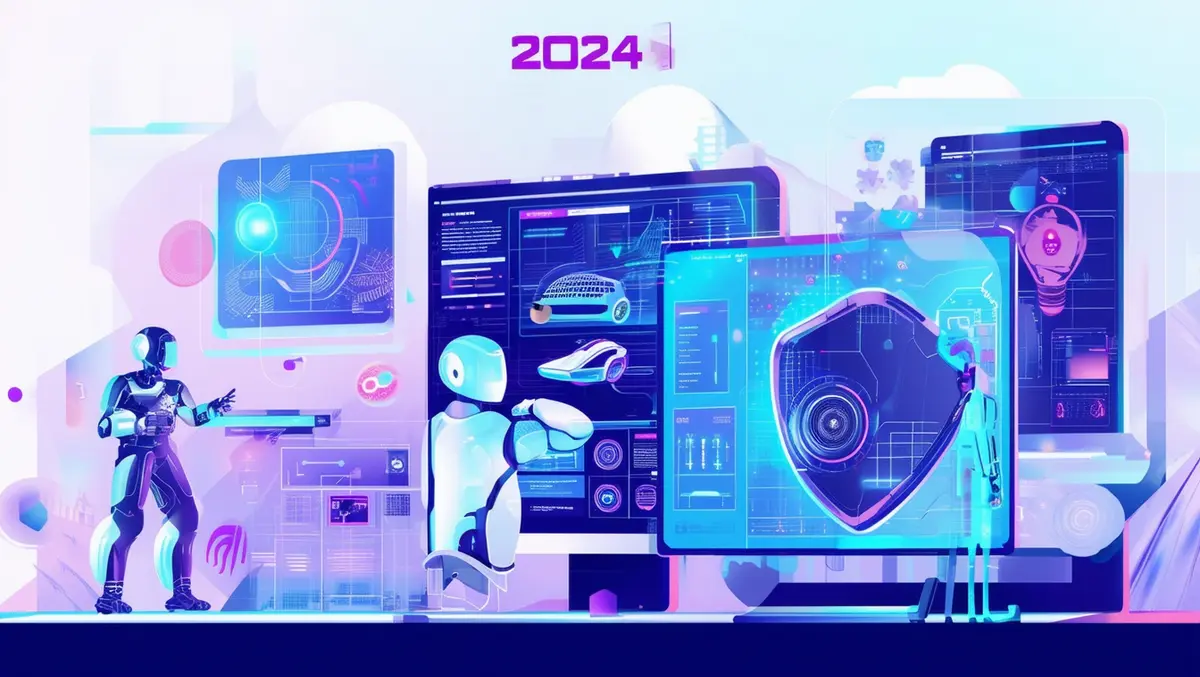
Gartner unveils top 25 disruptive technologies for 2024
Gartner has published its 2024 Hype Cycle for Emerging Technologies, identifying 25 disruptive technologies expected to have a significant impact on businesses. These technologies are grouped into four key areas: autonomous AI, developer productivity, total experience, and human-centric security and privacy programmes.
Arun Chandrasekaran, Distinguished VP Analyst at Gartner, commented on the shifting focus within AI realms. “Generative AI (GenAI) is over the Peak of Inflated Expectations as business focus continues to shift from excitement around foundation models to use cases that drive ROI,” Chandrasekaran stated. “This is accelerating autonomous AI. While the current generation of AI models lack agency, AI research labs are rapidly releasing agents which can dynamically interact with their environment to achieve goals, although this development will be a gradual process.”
Chandrasekaran emphasised the importance of considering other emerging technologies with transformative potential alongside AI. “Even as AI continues to grab attention, CIOs and other IT executives must also examine other emerging technologies with transformational potential for developers, security, and customer and employee experience, and strategise how to exploit these technologies in line with their organisations’ ability to handle unproven technologies,” he remarked.
The Hype Cycle for Emerging Technologies uniquely distils insights from more than 2,000 technologies and applied frameworks profiled by Gartner annually into a succinct set of "must-know" emerging technologies. These technologies are expected to deliver benefits over the next two to ten years.
Emerging trends in autonomous AI include systems that can operate with minimal human oversight, enhancing decision-making in complex environments. Examples of these advanced AI systems comprise multiagent systems, large action models, machine customers, humanoid working robots, autonomous agents, and reinforcement learning.
In the area of developer productivity, technological advancements are transforming how software is designed and delivered. Chandrasekaran noted, “Technology is revolutionising the way developers design and deliver software, making them more productive than ever. It’s ensuring they deliver higher-quality products quickly while maximising gains by improving developer satisfaction, collaboration, and flow.” Technologies bolstering developer productivity include AI-augmented software engineering, cloud-native applications, GitOps, internal developer portals, prompt engineering, and WebAssembly.
The concept of total experience merges customer experience, employee experience, multiexperience, and user experience practices to provide superior shared experiences. This strategy aims to address critical interactions and enhance confidence, satisfaction, loyalty, and advocacy among customers and employees. Technologies relevant to this strategy include digital twins of customers, spatial computing, superapps, and 6G.
Human-centric security and privacy technologies focus on creating cultures of mutual trust and awareness of shared risks within organisations. “Security practices too often rely on the premise that humans can behave in a completely safe and secure way. But when employees must make a choice between security and business delivery, they often choose business delivery, sometimes bypassing too-stringent security controls,” Chandrasekaran said. “Human-centric security and privacy weaves a tight security and privacy fabric into the organisation’s digital design.” Emerging technologies in this domain include AI TRiSM, cybersecurity mesh architecture, digital immune systems, disinformation security, federated machine learning, and homomorphic encryption.


